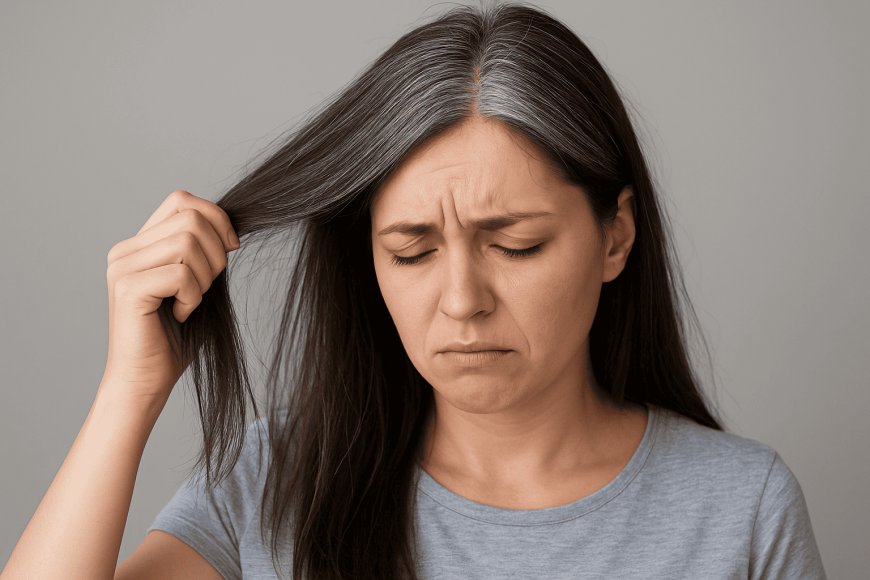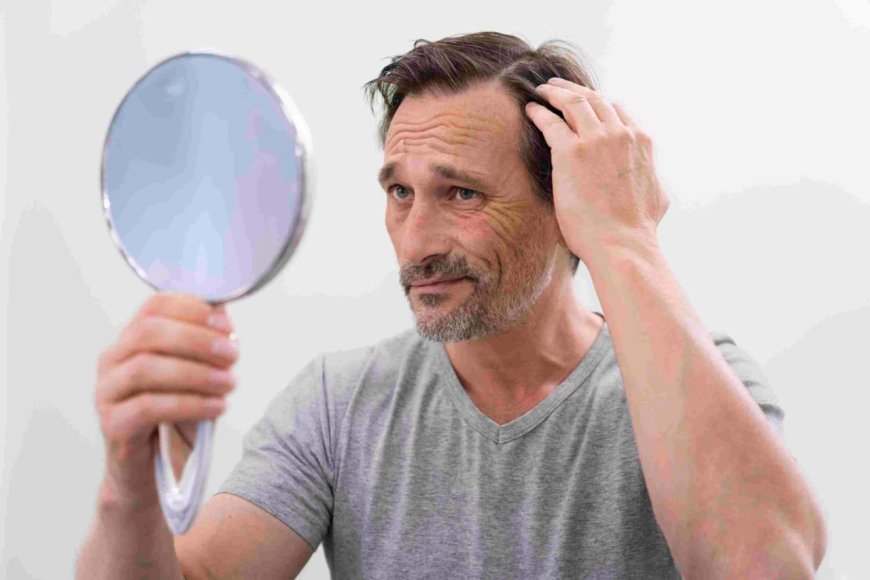Medical vs Natural Treatments: What Really Works for Hair Loss?
Compare medical vs natural treatments for hair loss. Discover what really works, from proven medications to safe home remedies and prevention tips.

Medical vs Natural Treatments:What Really
Works for Hair Loss?
Hair loss affects millions worldwide impacting both men and women at different ages. While some experience gradual thinning others deal with sudden shedding. With so many solutions available from medical treatments to natural remedies it’s easy to feel overwhelmed.The real question is:what actually works for hair loss.In this article well break down both medical and natural approaches their effectiveness and how to choose the right one for your needs.
Understanding

the Causes of Hair Loss
Hair loss is not always genetic. It can be triggered by hormonal changes nutritional deficiencies stress medications or autoimmune conditions. The most common type is androgenetic alopecia known as male or female pattern baldness. Before starting any treatment identifying the root cause is crucial as the effectiveness of remedies depends on what’s triggering the condition.
Medical Treatments Backed by Science
Medical treatments for hair loss are often the first choice for those seeking fast and proven results. Options such as minoxidil finasteride platelet rich plasma PRP laser therapy and hair transplants have shown significant success.These treatments are backed by clinical research and can offer long lasting results when used consistently under professional guidance.
Minoxidil The Most Popular Topical Solution
Minoxidil, commonly known as Rogaine is one of the most widely used treatments for hair loss. It works by improving blood circulation to the scalp stimulating dormant hair follicles. Available as foam or liquid it can be used by both men and women. However results require consistent application and stopping use often leads to renewed shedding.
Finasteride A Hormonal Approach
Finasteride or Propecia is an oral prescription drug for men. It reduces levels of DHT dihydrotestosterone the hormone responsible for shrinking hair follicles. This treatment is highly effective in slowing down hair loss and even promoting regrowth in some cases. However it’s not recommended for women due to hormonal side effects.
Surgical and Advanced Medical Options
For advanced hair loss medical technology offers PRP therapy low level laser therapy and hair transplant surgeries.Hair transplants provide permanent results while PRP and laser therapy stimulate natural growth. Although effective these procedures are expensive and require professional expertise making them less accessible for everyone.
Natural Treatments A Gentle Alternative
Natural treatments have been used for centuries to maintain scalp health and reduce hair thinning. Remedies like herbal oils aloe vera onion juice and green tea extracts provide nourishment and improve blood circulation. While natural methods are safe and affordable they work gradually and are best suited for mild hair loss or as supportive care alongside medical treatments.
Nutrition and Supplements for Hair Health
Diet plays a crucial role in preventing and treating hair loss. Nutrients like biotin, zinc, iron, vitamin D, and omega 3 fatty acids support stronger healthier hair. A protein rich diet ensures hair follicles receive enough building blocks for growth.Many natural hair loss treatments focus on correcting these deficiencies making nutrition a foundation for any solution.
Herbal Oils and Scalp Massage
Herbal oils such as rosemary peppermint and castor oil are popular in natural hair care. Regular scalp massage with these oils not only improves circulation but also reduces stress another major cause of shedding. Though the results may take months consistent use can strengthen roots and improve hair texture.
Comparing Effectiveness Medical vs Natural
Medical treatments deliver faster clinically proven results especially for genetic baldness. However they may have side effects and require lifelong use. Natural remedies are gentler cost effective and safer but their results are slower and often limited. The best approach often lies in combining both using medical treatments for regrowth while supporting scalp health with natural care.
Choosing the Right Approach for You
The right treatment depends on the cause of your hair loss your budget and your comfort level with side effects. Consulting a dermatologist is essential before starting any medication. For those with early or mild thinning, natural remedies and dietary changes may be enough. For advanced cases medical solutions such as minoxidil finasteride or even surgery might be necessary.
FAQs
Q1: Can natural remedies completely reverse baldness?
No.Natural remedies can improve scalp health and reduce shedding, but they cannot reverse genetic baldness.
Q2: How long do medical treatments take to show results?
Medical treatments like minoxidil or finasteride usually take 3–6 months to show noticeable changes.
Q3: Are hair transplants a permanent solution?
Yes.Transplanted hair follicles are resistant to DHT and typically last a lifetime.
Q4: Do natural oils like rosemary really help with hair growth?
Yes. Studies suggest rosemary oil may stimulate growth but results are slower compared to medical options.
Q5: Is stress management important for preventing hair loss?
Absolutely. Chronic stress disrupts hormone balance and can trigger excessive shedding.
Conclusion
Hair loss can be distressing but today’s treatments offer hope. Medical treatments like minoxidil finasteride PRP and transplants are scientifically proven and work best for significant hair loss.On the other hand natural remedies such as oils nutrition and herbal care support scalp health and reduce shedding.
The most effective approach is often a combination of both relying on medical treatments for visible regrowth and natural methods for long term maintenance. By understanding the cause of your hair loss choosing the right treatment and acting early you can protect your hair and restore your confidence.





















































